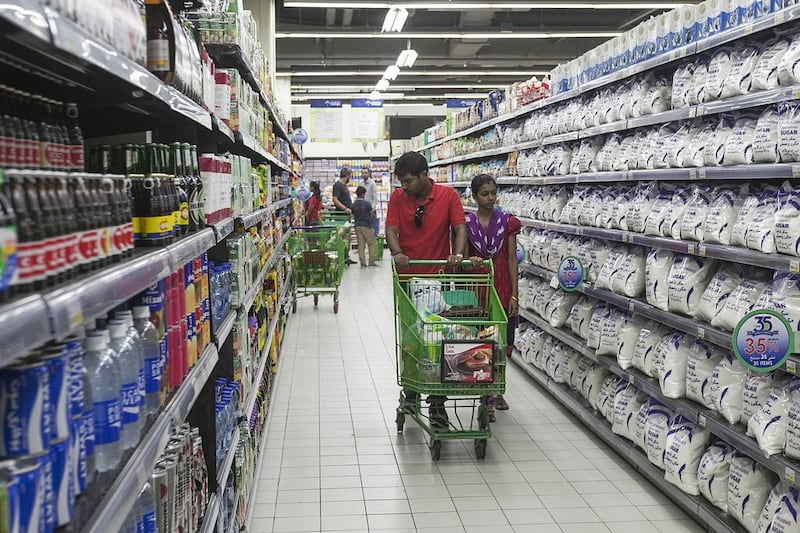Inflation in Abu Dhabi and across the country last month grew at its fastest rate since 2009 as housing costs and utilities prices continued to increase.
Nationwide, prices rose by 4.4 per cent in the 12 months to July, up from 4.2 per cent in June. That was led by a 10 per cent increase in housing and fuel costs.
In Abu Dhabi, inflation rose to 5.4 per cent in July, up from 4.9 per cent in June.
While Dubai’s housing market has shown signs of slowing, following a stronger dollar that has pushed up prices for foreigners and increased government taxes on home sales, Abu Dhabi’s property market has continued to heat up.
Abu Dhabi rents were up 10 per cent on a year-on-year basis in July, according to property consultancy CBRE. Between March and July, rents in the capital rose 3 per cent, according to data from Abu Dhabi Islamic Bank.
Housing supply in Abu Dhabi is set to grow slowly over the next five years. About 34,000 residential units are planned between now and 2018, which is below the five-year average for new residential units, according to CBRE.
Of these, only 6,000 units will be added in 2016 – a relatively small number, which will add to upwards pressure on prices.
But property research firm JLL said that Abu Dhabi’s housing market likely reached a “tipping point” where consumers’ budgets won’t stretch any further, meaning that home sellers won’t be able to continue to raise prices indefinitely.
Countrywide food inflation spiked during Ramadan, despite low global food prices and a strong dirham, which reduces the cost of imports. Food prices rose 1.4 per cent in a single month, as retailers lifted prices in advance of Eid. That was despite a 1 per cent fall in global food prices, according to the United Nations Food and Agriculture Organisation.
Imported goods continue to fall in price, as the strong dollar and dirham reduce the cost of foreign goods. Tobacco, clothing and footwear all became cheaper compared to 12 months previously.
July’s inflation figure showed transport prices remaining flat, and does not include the impact of changes in fuel prices, introduced on August 1.
Economists at Abu Dhabi Commercial Bank estimate that changes in the way fuel prices are calculated will add just over 1 per cent to the headline consumer inflation figure.
Abu Dhabi and Dubai have been steadily climbing the annual ranking of most expensive cities in which to live. Dubai is the 23rd most expensive city in the world, up from 67th last year, while Abu Dhabi is the 33rd, up from 68th place in 2014, according to data from HR company Mercer.
But inflation could be close to its highest point, according Razan Nasser, the senior economist for the Middle East and North Africa at HSBC.
“The long-term trend is that price pressures are likely to decline because of the tempering of the growth rate in the broader economy, and the softening of the real estate market,” she said.
abouyamourn@thenational.ae
Follow The National's Business section on Twitter





